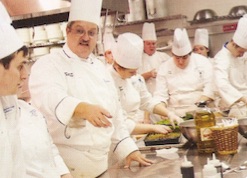
One of the most important things that everyone should do before choosing a career is to look into their chosen field in great detail. This should include the bad and the downright ugly bits as well as just the good stuff. Why? Well, it’s because only by knowing the challenges you will come up against will students be able to determine whether it is truly something that they want to dedicate their life to, or whether their talents are better used elsewhere. With this in mind get your students to check out all three parts of this post introducing nursing, to see whether it is a good match for them.
The Good
Helping people
Of course, at the top of many students’ lists is finding a career that enables them to help others. Nursing is great for this because not only do they get to provide physical care and aid with people recovery, there is also the aspect of bedside manner. The emotional care that can help people feel better when they are in difficult situations. In fact, this element is often cited as a reason why people chose nursing over being a doctor because they have more one to one time with patients to be able to establish this.
Doing an essential job
Nursing is also a great role, for those that are concerned with doing a job that is essential to society. Nurses are vital and will remain so. Meaning anyone studying in this area can be confident in the fact that they will be doing a useful and meaningful role once they are qualified.
Specialisms
Another appealing facet of going into nursing is that their air many areas that individual can specialize in. From things like wound care, gerontology, and intensive care work, to outpatient rehabilitation and new baby checks. It’s likely that there will be something in this field that is the perfect match for most students.
Flexible training life long learning
Nursing is also a profession where you are expected to never give up learning. Always being on the ball with new research in your area as well as being able to do additional training to help you move up the career ladder. In fact, you can even do an Online RN to BSN Degree now. Meaning that you can continue working in your RN position and study for your BSc in a flexible way. Something that can save on cost, and also is much more convenient as you can work on your assignments at home around your shifts.
Lots of jobs
Something else that is most definitely in favor of choosing a nursing career is that it’s a role where there is nearly always a demand for employees. This is great news for students going into the profession because they can be fairly sure that they will have job security. Something that is very important to many, especially when they have bills to pay and a family to support.
Can travel the world
Lastly, in the good section, it’s worth mentioning that nursing is one of those careers that provide you with the opportunity of traveling while you work. This is because nurses are often categorized as essential workers. Meaning that getting a temporary work VISA in another country, and well as emigrating permanently is often a lot easier than it would be if you have another profession.
The Bad
Shift work
Of course, nursing isn’t all roses, and there are some things that student need to know about this profession before they take the leap. In particular, that shift work that can be at night as well as in the day can be a challenge for many. Either because it can mess with their own sleep routine, or it can create problems with relationships and even childcare.
On feet all the time
Nursing is also one of those professions where it’s all go a lot of the time. That means nurses are often always on their feet, with little chance for breaks or rests in between tasks. This can be incredibly exhausting, especially when done over a long period of time. As the body never gets to rest and rejuvenate probably. This can lead to issues with things like plantar fasciitis, back pain, and strains that can be painful, and impede a nurse’s ability to work.
Understaffed and low budgets
Lastly, in the bad section, it is worth noting that depending on the area you work in as a nurse you may come up against issues such as there not being enough staff for the work that there is. This is often a budgetary issue and is more likely in facilities that provide care for those that cannot pay for it themselves.
Of course m if you do find yourself working in such a situation, it can be stressful as well as rewarding because you will be asked to do so much more, as there isn’t anyone else there that is qualified to do it.
The Ugly
Have to deal with the public when they are their worst
It’s also worth mentioning that while the chance to make an emotional difference in someone’s life is a vital aspect of nursing. It’s not all about mopping fevered brows and offering words of wisdom. Nurses also have to deal with the public, usually, when they are hurt, ill, or in pain. Meaning that they are not always at their best. This can be something that is truly stressful and difficult and is definitely an issue to be aware of before embarking on the profession.
Strong constitutions
Lastly, being a nurse definitely not a career for students that are faint of heart. As they have to deal with extreme situations, injuries, bodily fluids and even the fragility of life each and every day. This is something that can be particularly tough to get to grips with, and as nurses are really on the front line with regard to these issues, it should be something that is factored into any career decisions before they are made.





